February 11, 2025 | 10:54 GMT +7
February 11, 2025 | 10:54 GMT +7
Hotline: 0913.378.918
February 11, 2025 | 10:54 GMT +7
Hotline: 0913.378.918
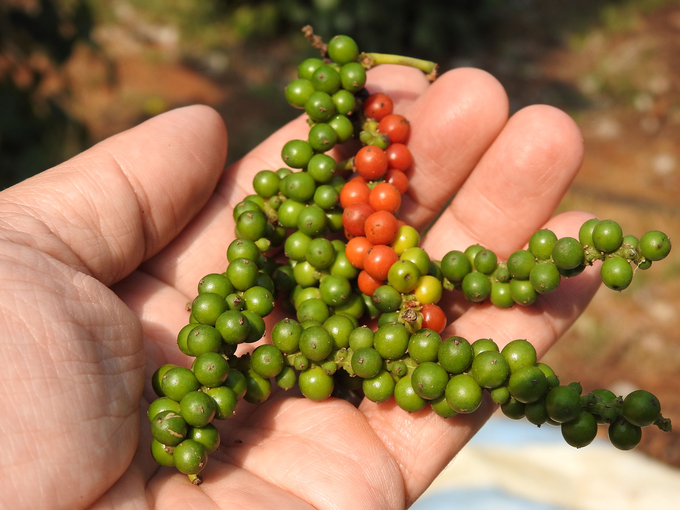
Organic pepper from Thien Nong farm (Phu Van commune, Bu Gia Map district, Binh Phuoc). Photo: Son Trang.
The European region, which encompasses Sweden, Denmark, Norway, Finland, and Iceland, is one of the world's leaders in the consumption of organic products, according to Vietnam's Trading Office in Sweden and North European countries.
In the context of daily product usage, European consumers are inclined to prioritize their health, environment, and social responsibility. North European consumers highly value organic products, such as food, drink, and personal care products, due to their non-harmful chemical composition, minimal environmental impact, and humane production.
Denmark presently maintains the world's highest rate of organic product consumption among the Nordic nations. Denmark consumed nearly 13% of its food as organic in 2020, with an estimated organic market value of 2.8 billion EUR. The Danish government has established a target of doubling the country's organic agricultural area by 2030.
Sweden is also a significant organic market in the Nordic region. Around 25 billion SEK (approximately 2.5 billion EUR) was the estimated value of Sweden's organic market in 2020. This figure is indicative of the increasing interest of Swedish consumers in organic products, particularly in the food and beverage industry. In Sweden, organic products comprised approximately 10% of the total food retail sales.
The organic market in Norway has been expanding at an annual rate of approximately 6-8% over the past decade, despite the fact that its consumption of organic products is lower than that of other Nordic countries. Also, there is a growing interest among consumers in Finland and Iceland in organic products, particularly in the culinary and healthcare sectors. The consumption rate of organic products in these two countries has been increasing at a rate of approximately 5-7% per year.
The organic product market in the Nordic region has significant potential, as consumers are increasingly preferring sustainable and environmentally favorable products. These figures underscore this fact.
The Nordic market is placing a growing emphasis on environmental protection, health, and sustainability, which presents substantial opportunities for Vietnamese businesses that are capable of providing organic products. If businesses are able to capitalize on opportunities and implement effective strategies, Vietnam's wealth of agricultural resources—including tropical fruits, seasonings, coffee, and herbal teas—offers significant potential for market entry, according to the Vietnam Trade Office in Sweden.
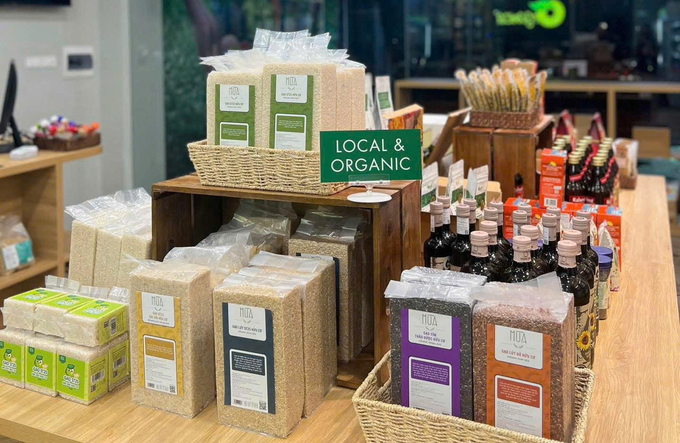
Some Vietnamese organic products. Photo: Son Trang.
Vietnam, a tropical nation, enjoys an advantageous climate and soil conditions that facilitate the cultivation of organic agricultural products. These products include high-quality organic tea, coffee, cashew nuts, pepper, coconut, vegetables, and medicinal botanicals. The distinctive flavors and superior quality of these products have already garnered recognition in international markets. The health benefits of Vietnamese herbal teas, including ginger tea, lotus tea, and chamomile tea, are well-known, which is consistent with the increasing trend of organic consumption in the Nordic region. These products have the potential to develop a significant niche market in this region.
Although these opportunities exist, Vietnamese businesses encounter substantial obstacles when they attempt to penetrate the North European market. Primarily, they must adhere to the rigorous regulatory requirements of the region. Nordic countries, like the rest of the EU, implement rigorous sustainability, organic certification, and food safety regulations. In order to gain access to this market, Vietnamese companies must adhere to EU Organic Certification and guarantee that their production processes are consistent with environmental protection and labor safety regulations.
Another critical factor is supply chain management. In the fields of organic cultivation, production, packaging, and logistics, it is imperative that businesses uphold rigorous standards and maintain transparency. This necessitates meticulous oversight of the procurement of raw materials and adherence to international sustainability standards.
Vietnamese businesses should concentrate on niche strategies in order to effectively enter the Northern European organic market. It is imperative to establish a sustainable and transparent supply chain that involves the collaboration of farmers, manufacturers, and other stakeholders to guarantee end-to-end organic compliance. Businesses can improve their credibility and competitiveness in the Nordic market by collaborating with international organizations like Fairtrade International or IFOAM (International Federation of Organic Agriculture Movements).
It is also crucial to comprehend the target consumer base in the Nordic region. It is possible to divide organic consumers in this market into distinct segments. In sectors such as food, beverages, and personal care products, health-conscious consumers are a primary target demographic. Consumers who care about the environment prioritize products that are not only good for their health but also sustainable and eco-friendly. They favor products with recyclable or biodegradable packaging. The premium segment comprises consumers who are prepared to pay a premium for high-quality organic products, particularly those that possess distinctive cultural significance, such as Vietnamese agricultural specialties.
Businesses must develop a robust organic and sustainable brand identity because brand value is a critical factor in the Northern European market. Businesses can emphasize the traditional and cultural aspects of their products by using storytelling as an effective branding strategy. For example, they can demonstrate the organic agriculture's broader advantages for both consumers and the environment, the dedication of local farmers, and Vietnam's natural farming methods.
Vietnamese businesses should capitalize on digital platforms such as Amazon, Etsy, and Zalando to broaden their market reach and advertise their products, as Nordic consumers frequently conduct product research and online shopping. Furthermore, businesses can enhance their visibility, establish connections with potential partners, and obtain a more comprehensive understanding of market demands by participating in significant international organic and food trade fairs in the Nordic region. BioFach (Germany), Nordic Organic Food Fair (Sweden), and Organic Denmark are important events that offer valuable opportunities for market entry and growth.
Vietnamese organic products have the potential to establish a strong presence in the expanding Nordic organic market by prioritizing certification, sustainable supply chains, targeted marketing, and brand narrative.
Translated by Linh Linh
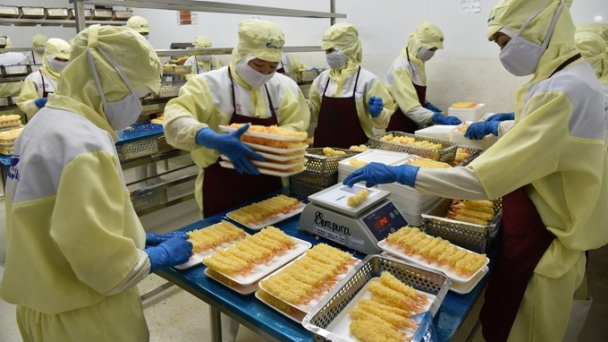
(VAN) Vietnamese shrimp continued to be the strongest-growing seafood export item in January 2025, reaching 300 million USD in value and accounting for 39% of total seafood export revenue.
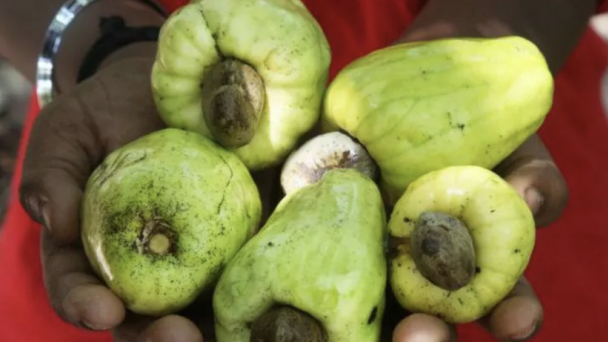
(VAN) Ghana is the world's third-biggest exporter of unprocessed cashew nuts, behind Ivory Coast in first place, and Cambodia in second.
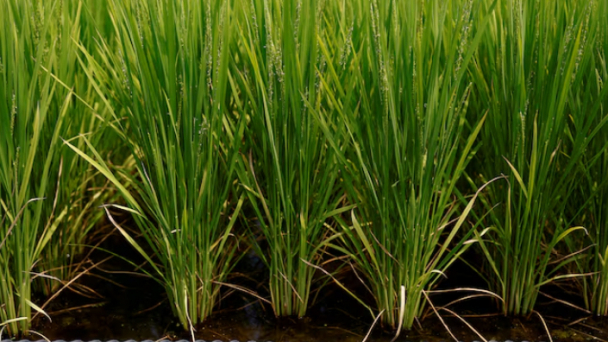
(VAN) The average transaction price of rice produced last year jumped 55% to 23,715 yen ($153) per 60 kg (132 lb) from the previous year, according to government data.
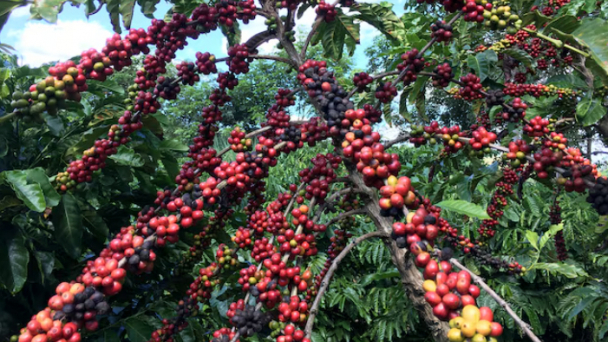
(VAN) Brazil's coffee roasters association, ABIC, recently identified in groceries powdered products marketed as coffee, but that are mostly not made with the bean.
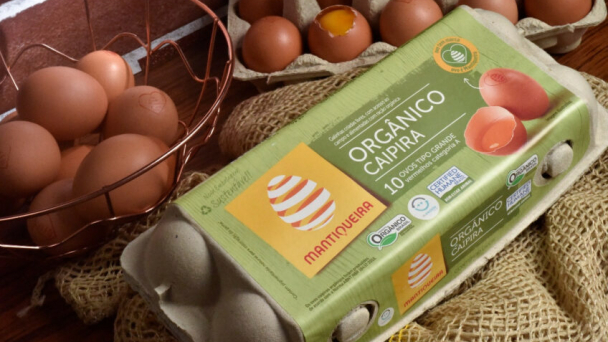
(VAN) JBS has announced the acquisition of 50% of Mantiqueira Brazil, the largest egg producer in South America and the 10th largest globally.
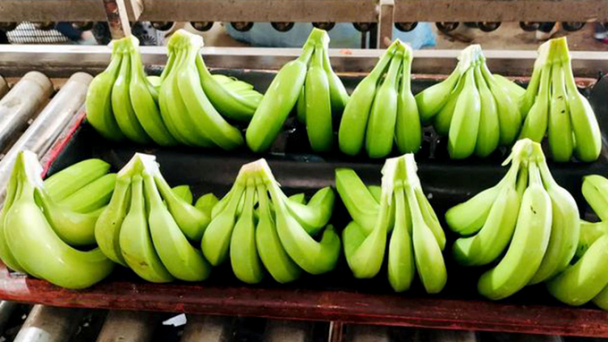
(VAN) Over the past year, China has significantly reduced its banana imports thus seen a surge in purchases from Vietnam and positioning the country as the largest banana supplier to the Chinese market.